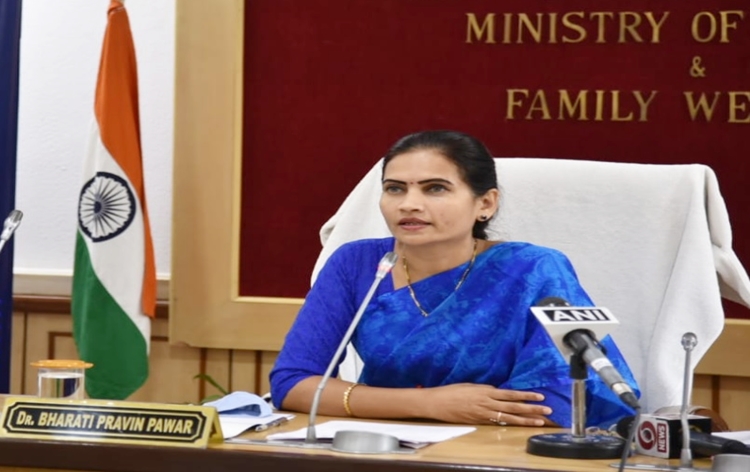To increase the access of generic medicines to the common man being sold through Pradhan Mantri Bhartiya Janaushadhi Kendras (PMBJKs) under Pradhan Mantri Bhartiya Janaushadhi Pariyojana (PMBJP), the department has set a target to open 10,000 PMBJKs by March, 2024. Till 30.06.2023, 9,512 PMBJKs have been opened across the country.
Further, Clause 1.5 of Indian Medical Council (Professional Conduct, Etiquette and Ethics) Regulations, 2002 prescribes that every physician should prescribe drugs with generic names legibly and preferably in capital letters. Further, the erstwhile Medical Council of India (MCI) had issued Circulars vide which all the Registered Medical Practitioners have been directed to comply with the aforesaid provisions.
The Directorate General of Health Services has directed all Central Government hospitals to prescribe generic medicines only. Similar instructions also have been issued to “prescribe drugs with generic name legibly” to all CGHS Doctors and Wellness Centres. Under free drug initiative of National Health Mission (NHM), support is provided for provision of essential generic drugs free of cost in public health facilities.
In order to promote the PMBJP scheme, the Department of Pharmaceuticals and Pharmaceuticals & Medical Devices Bureau of India (PMBI), the implementing agency of scheme periodically requests state/UT governments/ district administrations to create awareness about the scheme and provide rent free space for opening Janaushadhi Kendras in Community Health Centre (CHC)/ Primary Health Centre (PHC)/Government Hospitals. PMBI also spreads awareness about the scheme through advertisements in Print Media, Radio, TV & Cinema as well as Outdoor publicity like hoardings, bus queue shelter branding, bus branding, auto wrapping, etc. In addition, public is educated about the benefits of Jan Aushadhi generic medicines and the scheme through various social media platforms regularly. Further, Jan Aushadhi Diwas is celebrated every year on 7th March for further dissemination and spreading awareness about the scheme. Workshops and seminars are being organized during various event celebrations such as Azadi Ka Amrit Mahotsav, National Unity Day week, etc. to educate the citizens about the Jan Aushadhi generic medicines.
The manufacture, sale and distribution of drugs are regulated under the provisions of the Drugs and Cosmetics Act, 1940 and Rules there under. Licenses for manufacture, sale and distribution of drugs are granted by the State Licensing Authorities (SLAs) appointed by the respective state governments and SLAs are empowered to take the action in case of violation of any condition of licenses. CDSCO and Ministry of Health and Family Welfare have taken following regulatory measures to ensure the quality of medicines in the country:-
(i). The Drugs and Cosmetics Act, 1940 was amended under Drugs & Cosmetics (Amendment) Act 2008 to provide stringent penalties for manufacture of spurious and adulterated drugs. Certain offences have also been made cognizable and non-bailable.
(ii). States / UTs have set up special Courts for trial of offences under the Drugs and Cosmetics Act for speedy disposal.
(iii). The number of sanctioned posts in Central Drugs Standard Control Organization (CDSCO) has been significantly increased in last 10 years.
(iv). To ensure efficacy of drugs, the Drugs and Cosmetics Rules, 1945 have been amended providing that applicant shall submit the result of bioequivalence study along with the application for grant of manufacturing license of oral dosage form of some drugs.
(v). The Drugs and Cosmetics Rules, 1945 have been amended making it mandatory that before the grant of manufacturing license, the manufacturing establishment is to be inspected jointly by the Drugs Inspectors of Central Government and State Government.
(vi). The Drugs and Cosmetics Rules, 1945 have been amended, making it mandatory that the applicants shall submit evidence of stability, safety of excipients etc. to the State Licensing Authority before grant of manufacturing license by the Authority.
CDSCO coordinates activities of State Drug Control Organizations and provides expert advice through the Drugs Consultative Committee (DCC) meetings held with State Drugs Controllers for uniformity in administration of the Drugs and Cosmetics Act.
The Union Minister of State for Health and Family Welfare, Dr. Bharati Pravin Pawar stated this in a written reply in the Lok Sabha today.


